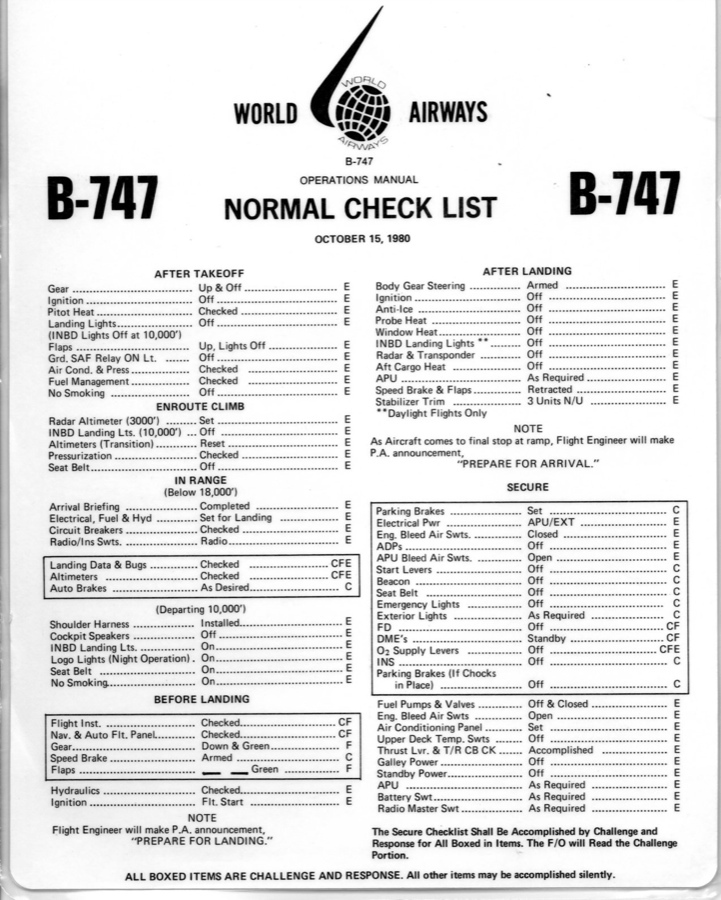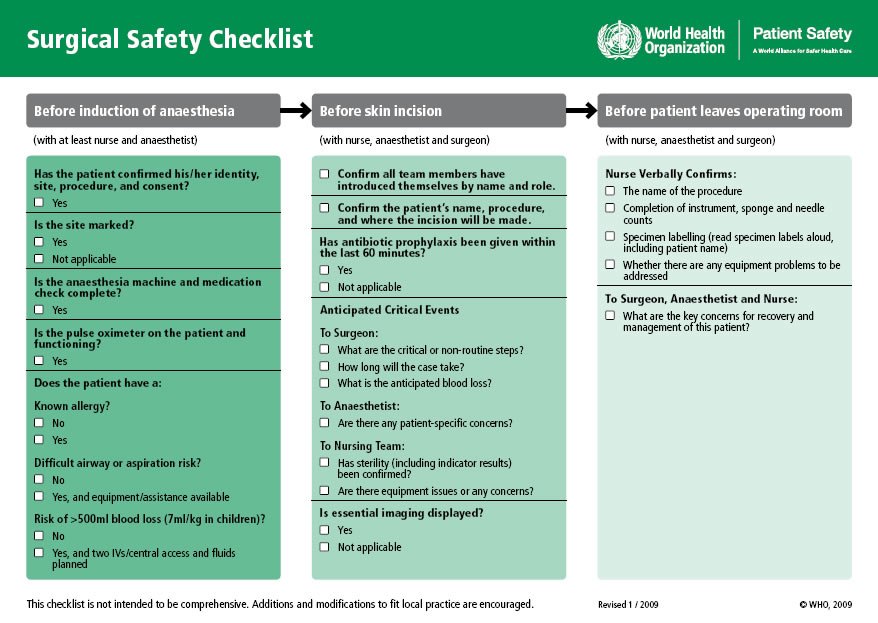Checklists
My work has quite a few checklists. Most of them have something to do with passing review gates. I’m predisposed to think checklists are a good thing. I wouldn’t feel good about flying in a plane with a pilot that doesn’t go through their checklists. Atul Gawande makes a very good case that the medical profession would likewise benefit from more checklists in his book, Checklist Manifesto.
Unfortunately, I do not often find the checklists at work helpful. To figure out why, I found it most useful to go back to flight checklists - perhaps the most famous of checklists. Below is an old checklist for a Boeing 747 that I found on the internet.

The items in the checklist have a couple of common features. The items in the checklist are quick to complete. The pilot typically has to only flip a switch or check a setting to complete an item. Similarly an item can be definitively checked. The switch is either flipped, or it isn’t. The setting is either properly set, or not. The pilot doesn’t have to have any internal debate, or debate with their co-pilot whether an item has been done. Further the checklists are for a procedure that has a routine - they are expected to be carried out the same way each time. This is not to say the routine is trivial, it may be a routine that takes great expertise to be executed correctly. But once the expertise is gained, each time the procedure is carried out, it should look much the same.
Here is a checklist for a generic surgery.

It shares the same characteristics that make the 747 checklist so useful. The items are simple to complete and it is not debatable whether they have been completed. Further, the procedure for the surgery is routine. They should be completed via a standard method.
My checklists at work often fail to satisfy the conditions that make the checklists above so useful. Just a review of some of the questions on several checklists shows why:
Has the Strategy been Reviewed? This checklist item is not definitive. Who needs to review it? Do they need to agree to the strategy or just give their opinion? Reasonable people could very well disagree as to whether this item should be checked. Further, this item could be laborious to complete, it’s not something you can do in a few seconds and move on.
Is the Requirements document available? OK, not too much wrong with this one.
Have high level assumptions and dependencies been identified? Come on. For large projects no people are going to identify the same high level dependencies. It is almost guaranteed that people will disagree when this very subjective item is OK to check off.
The other general problem with checklists for large programs is that they are not routine. As much as some would like to standardize the development of an aircraft or a large piece of software, etc, no two will look alike. An item that might be appropriate for a checklist at a review in one program will be totally inappropriate in another. The more creativity and ingenuity is required to complete a task, the less helpful checklists will be.
I’m made the argument in this post that checklists aren’t always useful. But I have instances at work where they have been useful. I have created several checklists for routine tasks that I must carry out on occasion. One example is a checklist to complete when reviewing new drawings. The checklist was born out of misses in previous drawings. Here’s a few examples of items on the checklist:
Check the fits with the mating part. This check is not instant. It does require looking at other drawings most likely. The check is fairly definitive. Unless the fit is a highly engineered fit, you just need to make sure the parts have the necessary clearance.